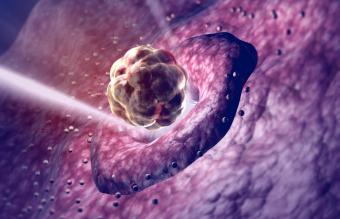
Women who have trouble conceiving are often prescribed Clomid. This is one of the most popular fertility medications; however, there may be some concerns about a possible link between Clomid and birth defects.
What Is Clomid?
Clomid (clomiphene citrate) is an oral medication. It is typically the first step in fertility treatments and one of the most often prescribed fertility medications in the United States. Clomid is used for a number of fertility problems.
- Ovulation issues: Women who don't ovulate regularly or who don't ovulate at all may benefit from using Clomid.
- Male infertility: Clomid can help increase the luteinizing hormone (LH) and follicle-stimulating hormone (FSH) in men as well as women. This may help increase testosterone, sperm count, and motility. However, there are some mixed results about Clomid's effectiveness for men, and one study determined that the results for Clomid use for male infertility were both varied and unreliable, and further testing would be needed.
- Unknown infertility problems: When a young, healthy couple has tried to conceive for several months without success, but there is no known reason for infertility. Clomid may be used to increase their likelihood of conceiving.
Clomid works by making a woman's body think it isn't producing enough estrogen. This causes the pituitary gland to increase production of the necessary hormones (LH and FSH) that stimulate the ovaries to produce mature follicles which contain the eggs. Ovulation will then occur. In about 10 percent of cases, the extra stimulation causes more than one egg to mature, which can lead to multiple births.
Side Effects of Clomid
Like any medication that affects hormones, Clomid does cause certain side effects, which most notably include:
- Mood swings
- Hot flashes
- Breast tenderness
- Visual disturbances
- Nausea
- Headaches
- Depression
Clomid is commonly and often paired with IUI (intrauterine insemination) but can also be used when trying to conceive through timed intercourse.
Clomid and Birth Defects
It is difficult to determine whether there is a definite relationship between Clomid and birth defects, however, there are a few questionable issues about Clomid which include:
FDA Drug Classification for Clomid
Clomid has been labeled in the Pregnancy Category X by the Food and Drug Administration (FDA), which means that there is evidence it can cause birth defects when used during pregnancy. This evidence is usually seen in testing done on animals since it is too dangerous to perform such experiments on humans. It's generally assumed that if a birth defect is present in animals exposed to a certain medication, the same will hold true in humans.
It's very important, however, to remember that this is based on the expectant lab animal being exposed to Clomid while she is already pregnant. Since Clomid is used only as a fertility medication, there isn't any reason for a pregnant woman to be taking it. Generally, the only way a pregnant mother would take Clomid is if she didn't realize she was already pregnant, in which case it would still only be used in the first week or so leading up to what she expects to be an ovulation. There is no reason for an expectant mother to take Clomid throughout a pregnancy.
Babies Born With Birth Defects
Some women who take Clomid to help them conceive go on to have babies born with birth defects, but it's hard to say if the medication is really the cause. It's important to remember that many women who take Clomid are already in a higher risk group for having babies with a birth defect.
Women Over 35-Years-Old
Women who are over 35 and have difficulty conceiving make up a large group of patients taking Clomid, but they are also at a greater risk of having a child with a birth defect even without using Clomid. One study indicated that there was no significant difference in the overall rate among babies born with congenital abnormalities to women who conceived naturally and those who were on Clomid. Therefore, it is difficult to determine whether Clomid is the cause of the birth defects or if it may be other problems related to the mother's infertility.
Most Common Birth Defects
When a birth defect does occur to babies of women using Clomid, the most common problems include Down syndrome, congenital heart defects, club foot, or a stillbirth. Remember, though, that birth defects can also occur in offspring of women who were not on Clomid or any other fertility medication.
The Risk of Birth Defects Is Low
When a baby is born with a birth defect, it's common for the mother to wonder if she did something to cause it. In many cases, there is never a clear reason found for the defect. Although there may be a possible link between Clomid and birth defects, a baby is at very little risk when Clomid is only used during the period before conception.







